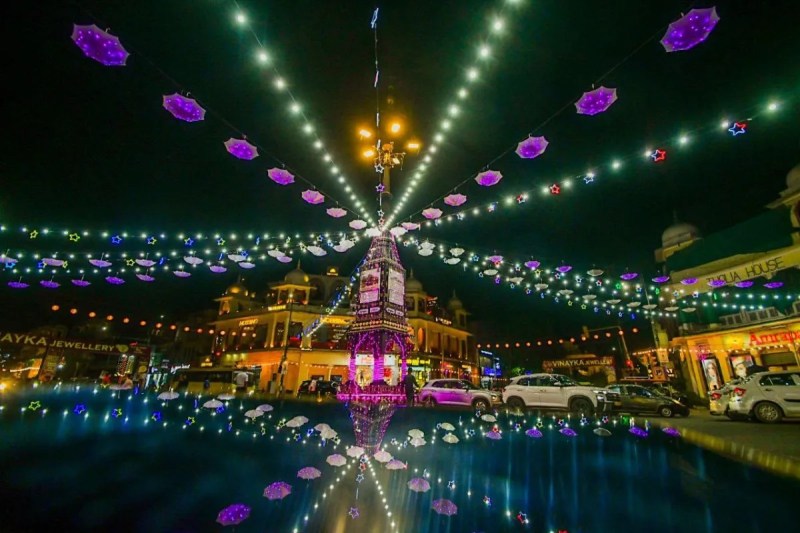
Rajasthan pollution (Image: Patrika)
Air Quality Index: Jaipur. The air quality in Jaipur has suddenly become polluted after Diwali and Govardhan Puja. The Air Quality Index (AQI) has increased rapidly due to the smoke from fireworks and dust. The air quality reached the 'poor' category between Monday night and Tuesday morning. Jaipur's average AQI was recorded at 251, which is significantly higher than the normal level. Experts say this situation is dangerous for health and can be particularly harmful to children, the elderly, and asthma patients.
The air quality in many areas of the city remained very poor. The AQI was highest at 287 in Shastri Nagar, Vidhyadhar Nagar, Subhash Nagar, and Panipach areas. The situation was also serious in the Sitapura Industrial Area, where the AQI was 275. In Adarsh Nagar, Raja Park, and Jawahar Nagar areas, this level reached 256. The air quality in MI Road and areas around the walled city also remained poor, with an AQI of 238 recorded here.
According to a report by the Rajasthan State Pollution Control Board, the level of air pollution has increased dangerously across the state after Diwali. Bhiwadi has become the most polluted city in the state, with its AQI reaching 332. The AQI in Chittorgarh was recorded at 287. In 24 cities, including Ajmer, Alwar, Bharatpur, Bikaner, Bhilwara, Jhunjhunu, Jodhpur, Kota, Udaipur, Sri Ganganagar, and Sikar, the AQI was recorded above 200.
The smoke, dust, and carbon particles released due to fireworks, combined with the moisture in the atmosphere, have made the air heavier. This has led to problems such as difficulty in breathing, eye irritation, and sore throat among people. Doctors have advised avoiding going out in the morning and at night, especially for the elderly, children, and individuals suffering from heart or lung diseases.
Experts estimate that the pollution level may persist for the next two to three days. An improvement in air quality is possible only with a change in weather or rainfall. Currently, the Pollution Control Department has appealed to the public to avoid unnecessary fireworks and contribute to environmental protection.
Updated on:
23 Oct 2025 10:18 am
Published on:
23 Oct 2025 10:17 am
Big News
View AllJaipur
Rajasthan
Trending

